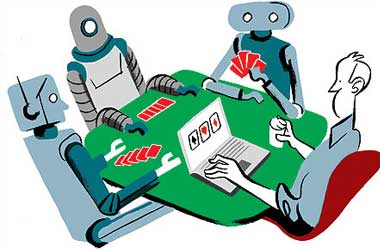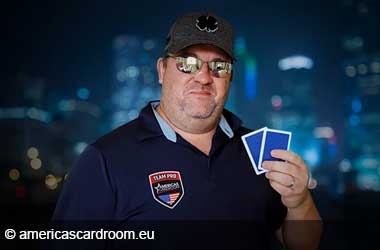 Poker bots may not be popular with online poker players but developers continue to strive hard to build the perfect poker bot even though it continues to be a challenging task.
Poker bots may not be popular with online poker players but developers continue to strive hard to build the perfect poker bot even though it continues to be a challenging task.
The 2016 winner of the Annual Computer Poker Competition was BabyTartanian8, a no-limit hold’em heads-up poker bot created by Noam Brown.
Speaking on the evolution of poker bots, Noam Brown said that in the initial days of no-limit Texas hold’em the bots were less complex in their play, with only a limited range of moves which included going all in, calling, making a pot-sized bet or folding.
At that point in time, the bots considered only 500 buckets which is the grouping of all possible hands and poker moves in its processing. Today with the evolution of software technology, bots like BabyTartanian8 evaluate almost 1 million buckets.
Brown said that development of the code for BabyTartanian8 took him approximately one month, after which it was run for a period of thirty days in the San Diego Super Computer which features 3,700 CPUs with 18 terabytes. However Brown added that access to such computing power was not necessary as proven by the fact that two out of the top three bots in the competition were not built by university or research groups but by regular individuals.
One of them was a professional poker player and a software engineer while the other was a Google employee who played amateur poker. Brown said that both these prize-winning bots had been made with a budget less than $10,000. He attributed the low cost of developing bots to the drastic fall in the cost of computing in the past year. Brown stated that although many think bots can’t bluff, bots today do have the capability.
The bots now have the capability to stimulate millions of hands and notice that even when it doesn’t possess a strong hand there are times when it can still make money by a play. He also outlined some of the weaknesses of existing poker bots. Even highly advanced bots operate well only in heads-up poker and not in more complex situations like a six-handed game. But Brown expects this to change as a lot of interest has been expressed in rectifying this weakness.
Another weakness he highlighted was the inability of poker bots to exploit an opponent’s weakness in a game. He said that this was because bots cannot build a strategy against an opponent based on limited sample of hands and this was their biggest weakness.
Brown added that while his bot would perform very well online against human players in heads-up games it is unlikely that any bot will be deployed given that poker websites are very vigilant in detecting and removing them.






